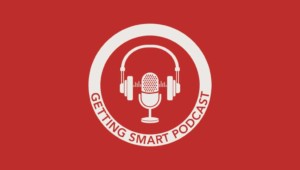The Inevitability of Personal Digital Learning
Standards-based reform began in the 1990s and was accelerated and broadened by NCLB in the naughts. The ideal of high standards, more measurement and strong accountability didn’t work as well as hoped—in many states we ended up with low expectations, cheap tests, and weak accountability. Done right, standards-based reform is still a good idea, but it’s hard to do well.
Many of the same advocates, me included, believed that new school development would prove to be transformational. Dozens of grant-funded networks sprung up, most promisingly charter management organizations
But after twenty years, five thousand charter schools only serve 3% of total enrollment. Half of these new schools are great but development has been slow and expensive.
A wave of thin governance reforms, poorly constructed pay incentives, along with waves of instructional fads all failed to produce impact at scale.
In a discussion of personal digital learning, former Massachusetts commissioner Dave Driscoll suggested that this time is different—that productive change is inevitable. Driscoll was the country’s best college-ready chief, leading the implementation of some of the best state standards. On his watch, Tom Payzant’s steady push made Boston the best urban district in American. Driscoll is on to something—the shift to personal digital learning is different than previous waves of education reform for at least six reasons:
1. The growth of informal learning opportunities. Targeted learning capabilities like Khan Academy are building on broad learning capabilities like search and Wikipedia. For anyone connected to broadband, it’s possible to learn almost anything.
2. The growth of online learning. Growing at 46% annually, online learning is extending access to quality content and instruction. Growth is concentrated where states have extended access with multiple statewide providers offering full and part time enrollment. (The future may be inevitable but progress is lumpy.)
3. RttT assessments will drive the shift to online testing (in about 44 states). The 2014 deadline for new state tests, which will probably be predominantly online, is causing states to consider plans for high access learning environments.
4. Online learning providers are massively scalable. For the first time, the U.S. has a half a dozen (nonprofit and for-profit) providers capable of serving millions of students with consistently high quality.
5. The ‘new normal’ environment will continue to promote productivity seeking school models. The press to do more with less will make this decade different than the last two decades of adding edtech to how we’ve always done school.
6. The adoption of Common Core State Standards will promote investment in the development of new engaging content libraries and learning platforms.
Commentators like Andy Rotherham worries about overhyping technology. There will be lots of versions of tech-enabled schools and, like charters, some will work better than others. But this is not like other reforms, it’s a phase-shift not a reform, it’s a shift from print to digital and from groups to individual students. These shifts are irreversible historic shifts not temporal reforms.
Rupert Murdoch delivered an extraordinary Joel Klein inspired speech to the G8. Tom Watkins, former Michigan Commissioner, outlines 10 actions steps for digital learning. There are at least six reasons that the shift to personal digital learning is an inevitable phase-shift and not like historical reform efforts.
Desmos debuted at TechCrunch Disrupt. The newest Learn Capital portfolio company leverages the magic of touchscreens (white boards and tablets) by enabling interactive content.
The ‘new normal’ New School Venture Fund focused on innovation and productivity. Game icon Bing Gordan kicked off the summit with lessons from building games. Here’s 4 things I’d like to see at and before the next Summit.
Karen Cator, at SIIA in San Francisco, discussed the provocative potential of open content and new learning certification strategies. Bryan Setser opined on curating cloud-based resources. The Cooney crowd in LA explored how entertainment can ignite a learning revolution.








0 Comments
Leave a Comment
Your email address will not be published. All fields are required.